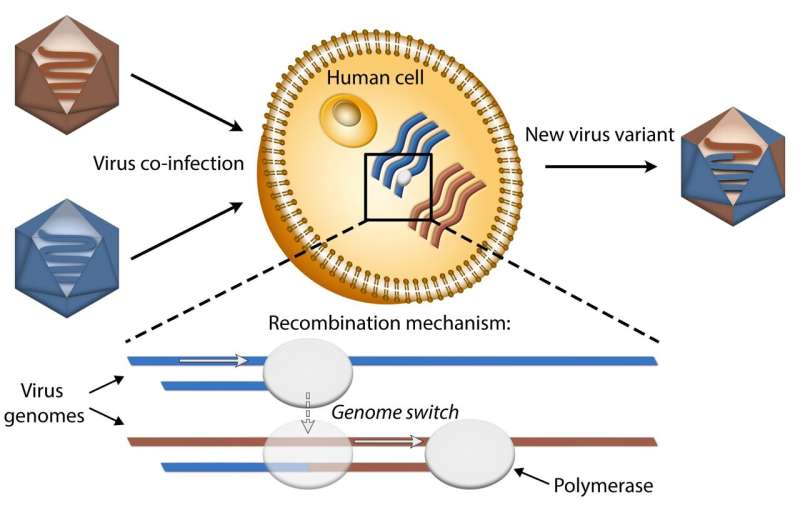
An international consortium, led by Delft University of Technology and the University of North Carolina, has for the first time succeeded in probing the molecular origins of recombination in RNA viruses. Hiccups during the copying process of viruses cause recombination to take place: the exchange of segments of viral RNA. While this can lead to the emergence of new virus variants, the mechanism can also be exploited to induce non-viable defective viruses. The research is published today in Molecular Cell.
The research, led by the research group of Professor Nynke Dekker, clarifies at the molecular level how RNA viruses recombine: when there is a hiccup in the RNA copying process (also known as replication), the molecular copying machinery (known as the polymerase) jumps from one RNA strand to another and continues copying there. This causes recombination, in which the RNA strand produced is a combination of different RNA strands, a process in that can lead to the development of new virus variants. Dekker says “we first saw hiccups in the copying process at the molecular level in the lab, and could then observe its consequences for recombination in cells and finally in mice. It’s really great that thanks to collaborations with other institutes we were able to figure out this mechanism.”
Search for virus inhibitors
As we experienced during the corona pandemic, new virus variants can have disastrous consequences. It is therefore critical to find ways to not only stop existing viruses, but also to stay ahead of new variants. The researchers saw that the copying process and the occurrence of recombination can be influenced by a new class of antiviral drugs that specifically targets this copying mechanism. There appears to be an important consideration here: when large quantities of antiviral drugs are deployed, recombination occurs so often that the RNA strands become too chopped up and no new viable virus particles are produced. But conversely, too low quantities of antiviral drugs can cause the copying process to trigger recombination at a viable level, potentially promoting the creation of new virus variants. Postdoc Richard Janissen says “now that we know we can influence the copying process and the emergence of recombination, we may be able to design new antiviral drugs that prevent both virus copying and the emergence of new variants through recombination.”
Vigilant
Source: Read Full Article
